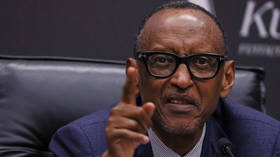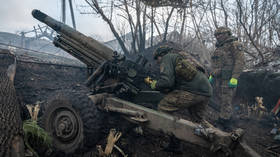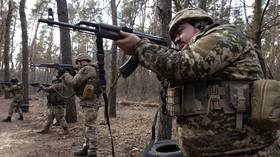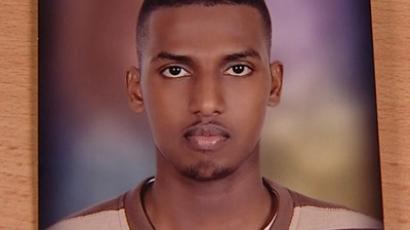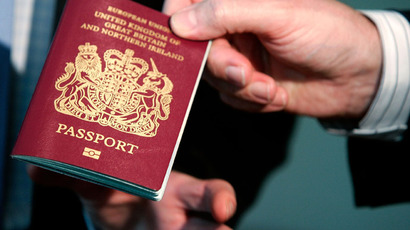UK to confiscate passports from ‘suspected’ terrorists, criminals, football hooligans
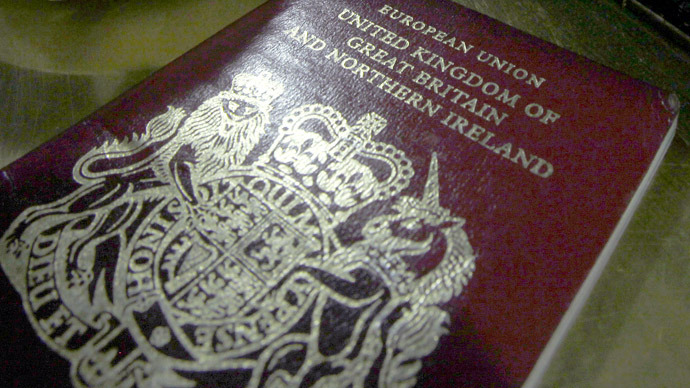
UK citizens can now be stripped of their passports for “actual or suspected” activities declared to be “contrary to the public interest” without a legal procedure, Conservative Home Secretary Theresa May has announced.
May told parliament the move is aimed at “individuals who seek to engage in fighting, extremist activity or terrorist training outside the United Kingdom, for example, and then return to the UK with enhanced capabilities that they then use to conduct an attack on UK soil.”
“The need to disrupt people who travel for these purposes has become increasingly apparent with developments in various parts of the world.”
Previously, the Home Office could only confiscate passports if a UK citizen engaged in "demonstrably undesirable" acts. The sanction was applied infrequently, and since 2005 not one Briton has been divested of their travel documents.
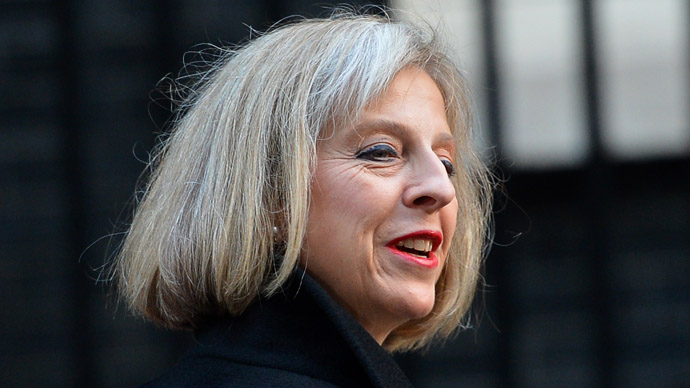
Earlier this week Foreign Secretary William Hague said a “substantial number” of UK citizens is fighting in the Syrian conflict as part of radical Islamic groupings. Most of Britain’s domestic terrorists, including the organizers of the 2005 London bombings, received training in terrorist camps in countries such as Afghanistan and Pakistan.
But some experts disagree as to the origin of radical conversion
to extremism. The radicalization process is taking place in the UK
and not overseas argues defense consultant, Moeen Raoof.
“They are being radicalized in their living groups up and down
the country. The television sets are informing the
radicalization process,” Raoof told RT. The consultant argues
that domestic terrorists are “self-radicalizing or radicalizing
in peer groups.”
The Home Office will be able to make the decision to withdraw a passport without consulting Parliament or going through the legal system, as the issuing of foreign passports is a Royal Prerogative, a legacy power possessed by the monarchy, and by proxy, by the Cabinet.
Nonetheless, those refused passports will be informed of the reasons for the rejection.
The new rules will not just cover potential terrorists, but those facing arrest warrants, bail restrictions or international orders. As an example, May said that known football hooligans could be banned from leaving the UK.
But May insisted that despite the wide-ranging discretion given to the Home Office on the issue, the measure will only be used where it is “necessary and proportionate”.
Under the current guidelines, four Britons returning from Guantanamo eight years ago were stripped of their passports. Somali-born UK national Mahdi Hashi went missing while visiting the African country and was reportedly imprisoned at the US base; his family in the UK discovered that his citizenship had been revoked. The new law is expected to be applied much more readily, though the Home Office refused to estimate how many people would lose their travel rights.
Being a Royal Prerogative, the new policy comes into force
immediately.






